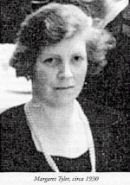Violent burning pain in right lower lip, persisting when moved.
Bleeding gums.
Dry feeling, palate. Nausea, palate.
When swallowing food, shooting in throat.
An almost insatiable thirst for cold milk.
After eating, pressing down weight in stomach and aching.
In navel a periodical aching squeezing.
Loud rumbling in abdomen, especially upper part.
Extremely violent pinching contraction of bowels from both sides of the umbilical region.
Pressure on several parts of hypogastrium. Distress in the abdomen.
Thin, whitish-grey stools.
White or yellow watery diarrhoea, chronic or acute, without pain or marked debility or exhaustion.
Stools involuntary.
Urging to urinate, with scanty discharge of urine.
Quite pale urine which immediately forms a thick whitish cloud.
Very profuse emissions.
Onanism, with distress at its culpability.
Great hoarseness.
Difficult inspiration, from pressure and oppression behind the sternum. Pain in chest from weakness.
Pressive pain in middle of the chest, most severe when expiring.
Felt as if sternum would be pressed out: pain more violent on pressing hand on sternum, stooping, coughing etc.
Dry cough from tickling low down just above pit of stomach.
Feels bruised in hips, thighs, arms, and nape: like growing pains: with single tearing stitches in all these parts at once.
Exhaustion in legs when walking. Formication right leg.
Squeezing pressure in soles (one or other).
Here and there, a creeping, like ants running about.
Itching creeping in body and hands, evening, lying down.
Drowsy in the morning: can hardly be roused from sleep.
Deterioration of health from nursing.
Weak and prostrated: weak and apathetic in the morning.
Neurasthenia: cerebrospinal exhaustion from overwork: least attempt causes heaviness in head and limbs.
Interstitial inflammation of bones: scrofulous, syphilitic or mercurial.
Periosteal inflammation, with burning, gnawing, tearing pains.
Scrofulous affections of children: hip disease, curvature of spine, rickets, FEELING AS IF BONES WERE SCRAPED WITH A KNIFE.
Children and young people who have grown too rapidly: tall, slender, slim: pains in back and limbs as if beaten: growing pains.
HUGHES (Pharmacodynamics) says, “Failure in memory is reputed a special indication for it in cerebral depression: the emotional condition is one of apathy and indifference. It is to nervous debility want iron is to anaemia”.
It is in diabetes that Phosphoric acid has won its greenest laurels. Not only in the “insipid” form but in true glycosuria cure has repeatedly followed administration of this acid.
In low fevers it is indicated when the nervous system rather than the blood is affected by the poison. It has more than once proved curative in purpura and passive haemorrhages.
HERE is typical Phos. ac. in typhoid: we quote from HERING.
TYPHOID: complete apathy and indifference; takes no notice, even when pinched; utterly regardless of surroundings: face pale; nose pinched; eyes sunken; staring, stupid, vacant gaze; eyes glassy; desires nothing, asks for nothing; grasps about him with hands as if he wished to seize something; answers questions not at all or unwillingly; gives short unintelligible answers, which at times are inappropriate, as of one slumbering; sopor; falls asleep while talking; when awake complains of great and very annoying confusion and cloudiness in head, with great anxiety; when slumbering sees many visions; great roaring in ears; hardness of hearing; lies with eyes half-closed, indifferent to all around her reflects long, then answers correctly, but slowly; vertigo; pointed nose; dark blue rings around eyes; rapid sinking of strength; nose bleeds, which, however, gives no relief to symptoms in early stages; bores fingers into nose; itching of nose from irritation of Peyers patches; crusty lips; sordes on teeth; fetor oris; thirst; abdomen distended and bloated, with much gurgling and rumbling; left side abdomen sensitive to touch; stools watery, sometimes involuntary and contain undigested food; milk passes more or less undigested; copious escape of flatus with stool; stool bloody and slimy; tongue dry, may have a dark red streak down centre, but is apt to be pale and clammy and sometimes covered with slimy mucus; bites tongue involuntarily while asleep; urine highly albuminous, milky, decomposing rapidly, loaded with earthy phosphates; petechiae; ecchymosis; decubitus; enlargement of spleen.

